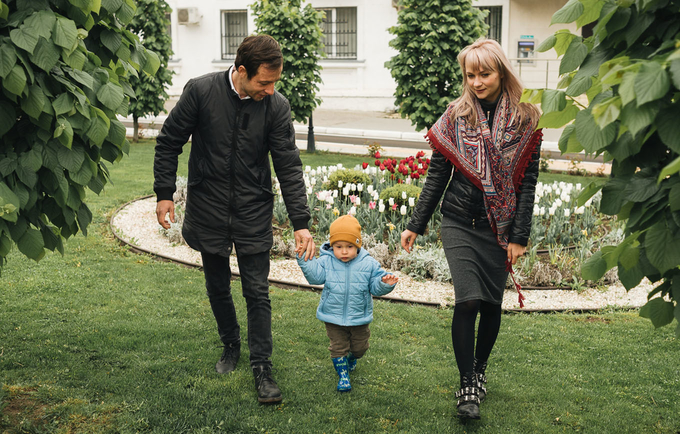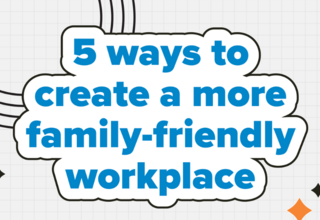ORHEI, Moldova — “We would like to have two kids, but only after we are financially ready,” says Elena Tira, age 27. She and her husband, Mircea, are already raising a daughter who is almost two years old. Before conceiving a second child, Elena wants to develop her business offering prenatal classes for future parents, which she launched during her first maternity leave. The couple also plans to move to the capital city of Chișinău, which they believe will offer better career opportunities.
Many Moldovan couples say they would like to have two or more children. But fertility rates have been dropping dramatically, down to 1.2 births per woman. According to the National Bureau of Statistics, the year 2018 saw the smallest number of children born in Moldova since the country’s independence.
Economic factors are a major barrier for couples to fully realize their reproductive aspirations and have their desired number of children. Many young people are still leaving the country to seek better prospects elsewhere, while those who stay face challenges balancing work and family life due to a lack of supportive policies as well as traditional gender norms that place the bulk of childrearing responsibilities on women.
‘Employers are not very supportive of young fathers’
“Both parents should take care of their child from the very first days of his or her life, but here in Moldova, the employers are not very supportive of young fathers taking paternity leave,” Elena says. “At the same time, many parents do not even know about the possibility of taking such a leave, which means that more awareness-raising is needed.”
She thinks the state should also establish more nurseries so that women are able to return to work when they want to. “Women without family support or other childcare possibilities are forced to stay on maternity leave until their child turns three and is able to start preschool,” Elena says. “This means they lose opportunities for professional advancement and updating their skills, and often face difficulties in returning to work.”

Elena and Mircea Tira with their daughter. Photo: UNFPA Moldova
Family finances play a crucial role as well. “You would hardly think of having a child if you live with your parents and do not have a well-paid job,” adds her husband, Mircea.
UNFPA continues to advocate for the full implementation of policies that support Moldovan families in having the desired number of children. Though paternity leave and flexible maternity leave have been introduced, the general climate is still unfavourable for families. Many employers continue to be reluctant to hire pregnant women or parents with small kids and social norms deter fathers from getting more involved in raising and educating their children.
‘We experienced all the emotions of birth and childrearing together’
Vasile and Cristina Cucu, also from Orhei, are another young couple bucking the trend by being both closely involved in raising their son, Matei, who recently turned 18 months old. The couple say they mastered parenting on the fly, with Vasile getting involved in childcare straight from the maternity unit. “He took care of the baby, changed his diapers and fed him, because I needed recovery,” says Cristina, age 25, who is on maternity leave from her job with a foreign company.
Vasile, age 28, took a leave of absence from his job as an accountant in order to be there for his wife and child during the first days after birth. “I’ve fully committed myself to this project. I helped my wife during birth, we experienced all the emotions together. It was harder for her, clearly, but I was by her side,” he says with a smile.
As Matei grows, Vasile continues to participate in raising and educating his son: he feeds him, takes him for walks, reads to him from children’s books. “I teach him some small but important things every day: how to drink with a straw, how to make different sounds,” Vasile says.
If all men were as involved in child-raising as her husband, Cristina believes, women would find it easier to decide to become pregnant again. “Only a few months after Matei’s birth, I was already telling my husband that I wanted another child,” she says. The couple hope to have two more children over the next five years.




